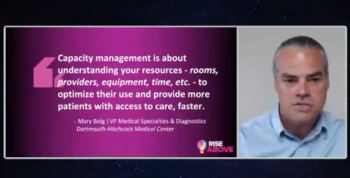
Managing Accounts Receivable (A/R) the Right Way
A/R must be properly managed in order to maintain sufficient cash flow within a medical practice. Here’s how to do it the right way.
Accounts receivable (A/R) can be tricky to gain control over, especially as
Make it a habit.
It's easy to overlook specifics when pressed for time, but you must take care with financials. "On every visit, ask every patient if there is any change in insurance," said Philip Obiedzinski, a board certified foot and ankle surgeon and attending at Hackensack University Medical Center in New Jersey. "You do not want to waste time billing the wrong insurance and then billing or calling the patient [after that]." This is the ideal time to verify demographics information also.
Collect at point of service, always.
Sunni Patterson, president of RMK Holdings, Inc., an Illinois-based service provider specializing in healthcare collections for physician offices, recommends collecting 100 percent of the patient's responsibility at point of service.
While that may seem extreme, Obiedzinski has seen the shift towards this method firsthand. "For elective surgery, Hackensack University Medical Center asks that the copay and/or deductible be paid before the patient even arrives," he said.
Create a collections culture.
"An increase in receivables can typically be tracked to a breakdown in workflow or process," said Patterson. That's why it's imperative to create a culture in which all staff understand their responsibility in lowering outstanding A/R.
She recommends that practices "implement checkpoints and match denial categories to a step in the revenue cycle." This will help to flush out those areas where the process is faltering.
Educate the patient.
Patterson suggests educating patients about their cost-sharing obligations, as well as the practice's specific financial policies and the consequences for non-payment.
Obiedzinski does the same. "Patients react positively when they know ahead of time what the charges will be, so I tell my surgical patients what the fee is and what it does not include," he said. He also makes it easy to pay by accepting several payment methods, including credit cards, PayPal, and Apple Pay.
Don't be afraid to outsource.
When all else fails, physicians may want to consider outsourcing their billing and collections. "[Outsourcing] allows for more time to be spent on other income-generating endeavors," said Sebastien Sainsbury, director of investor and public relations at Medytox Solutions, Inc., a medical services holding company located in Palm Beach, Florida. "Be sure to use a partner that can acquire outstanding A/R at an agreed-upon age and provide a 36-48 hour turnaround on financing of A/R, with no caps," he said. Also, the funding should be available for all types of medical receivables, so long as they originate from a country using ICD-10 codes.
Undoubtedly, there can be a learning curve to figuring out the best formula for your own A/R process. But with a little time and effort, successful management is definitely possible.
Steph Weber is a freelance writer hailing from the Midwest. She writes about healthcare, finance, and small business, but finds her passion for the medical field growing in sync with the ever-changing healthcare laws.
Newsletter
Optimize your practice with the Physicians Practice newsletter, offering management pearls, leadership tips, and business strategies tailored for practice administrators and physicians of any specialty.








